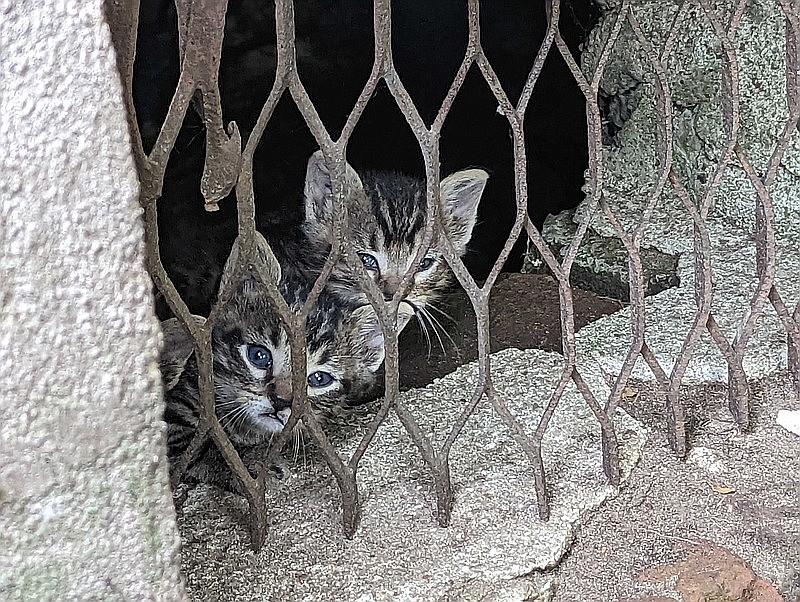First published May 14, 2022
By Staff Writer Joshua Turner
Stray and feral cats have been an issue in downtown Magnolia for some time, according to Mayor Parnell Vann.
"We know of a brood of cats that started to grow behind Corner Clubhouse. We know that a group of women downtown had been feeding them... Some efforts have been made to remove them... Obviously, there must be a stray female and tomcat we missed if there are kittens," Vann said this week.
According to wildlife and conservation expert Pete Marra, feral and stray cat colonies have a negative impact on the ecosystem, the lives of humans and the health of pet cats.
According to Marra, cat colonies have led to the extinction of 33 species of birds worldwide.
Cat colonies are also more likely to carry diseases that negatively impact other cats, including pets, and humans.
In cat colonies, due to a lack of health care diseases, like rabies, feline aids, and feline parvovirus spread.
Cats also have many diseases that they can spread to humans. In a research paper by the University of Florida, it was found that feral and stray cats are the largest contributor to rabies infections in humans by domestic animals. Cat scratch fever, flea-borne typhus, toxoplasmosis and the plague can also all be transmitted to humans by cat colonies.
According to Vann, Magnolia does not have any ordinances to control or capture cats.
Some of the research from the University of Florida shows that one way to control cat colonies is a TNR (Trap-Neuter-Release) program. Currently, Columbia County does not have any such program. In neighboring Union County, a TNR program that was started in 2019 has been successful, according to reporting by the El Dorado News-Times.
There are a few courses one can take to help curb the feral and stray cat population locally.
Pet cats can be collared and microchipped so that if it strays from home, it can be returned.
Stray or feral kittens or cats can also be adopted.
Spaying and neutering pets prevent them from becoming pregnant or impregnating strays and feral animals if they get out.
Local residents could also start their own TNR programs. There are resources such as SpayUSA which help by offering funds for each cat spayed or neutered.
Marra also recommends euthanizing cat colonies if needed.
"In high-priority areas there must be zero tolerance for free-ranging cats. If the animals are trapped, they must be removed from the area and not returned. If homes cannot be found for the animals and no sanctuaries or shelters are available, there is no choice but to euthanize them. If the animals cannot be trapped, other means must be taken to remove them from the landscape--be it the use of select poisons or the retention of professional hunters," he said.
Columbia County Animal Protection Society will take in malnourished cats or abandoned kittens. If cats seem to be doing well and kittens are being taken care of by their mother they recommend that you leave them be. CCAPS has been low on space. If you are looking for a new cat they recommend you visit and adopt a cat that needs a good home.

